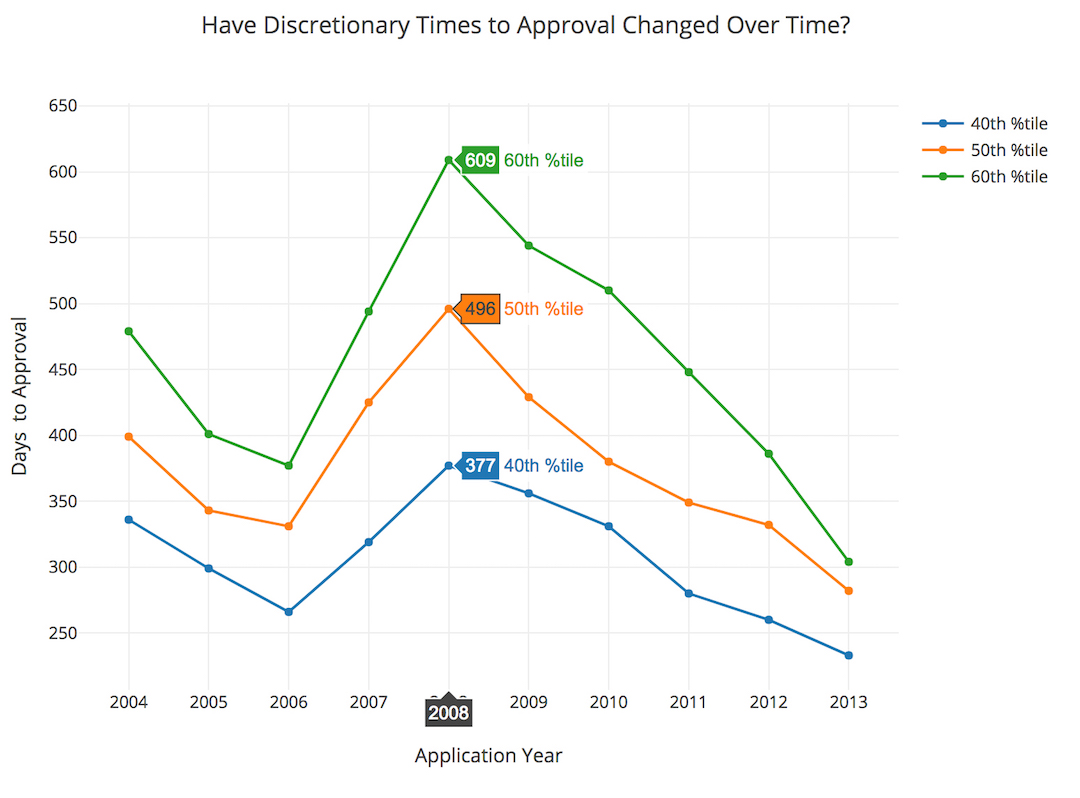
Stacked bar chart showing mean and median days to approval in San Diego for a variety of development permit types. Types indicated with arrows are those the city requires Airbnb hosts to have.
San Diego Development
In 2014, The Development Services Department (DSD) of San Diego released to the public a store of detailed development permit data from the previous 11 years. Working as a data scientist for
Civic Knowledge, I partnered with Andy Keatts at the
Voice of San Diego newspaper to produce seven data-driven stories based on DSD records. A focus of our investigation was the time to approval of discretionary permits—those permits requiring special permission from the city. The city claimed it was getting faster at approving permits, and we showed that they were correct, using a Bayesian model to predict which outstanding permits would eventually be approved (see below). Our work was nominated for a national data journalism award.

Time series plot showing the change between 2004 and 2013 in time to approval for discretionary development permits in San Diego. Our analysis confirmed the city's claim that it is getting faster at approving discretionary permits. Since approvals can take multiple years, not all of the permits in recent years have been completed, and some of them never will be, either because the developer abandons the project or the city rejects it. Using a Bayesian model, we used the approval times from 2004 through 2008 to assign a probability that outstanding permits will eventually be approved, and on the basis of this probabilistic model, we projected the total number of approvals for the years between 2009 and 2013. We can't predict how many days an outstanding project will take, but we can predict the minimum number of days it will take, based on our projection of how many will eventually be approved. That allows us to calculate the percentiles shown above—because we know that once approved, it will lie above our target percentiles.

